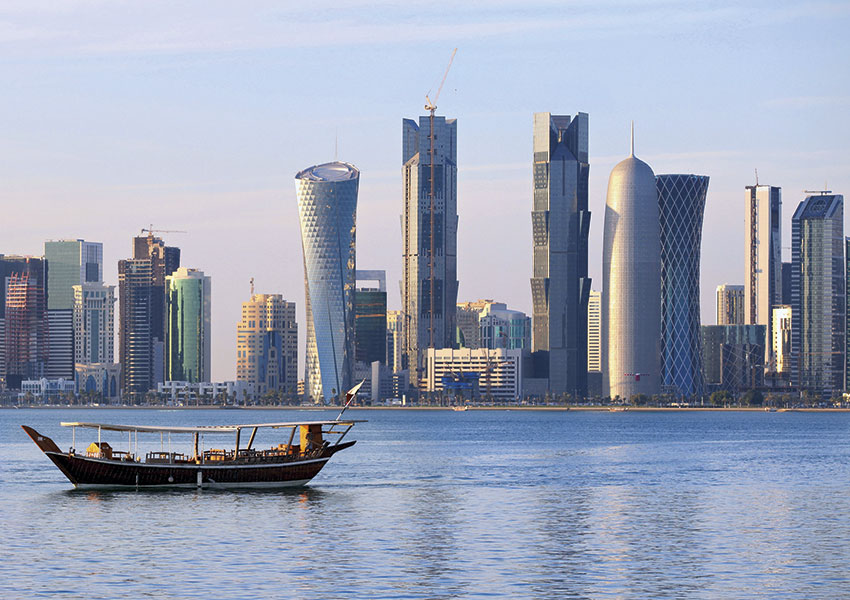Major infrastructure projects coupled with recently introduced mandatory schemes have given the insurance sector a needed boost

Qatar’s successful diversification from a purely energy-based economy over the past couple of decades has been one based on teamwork. While the Qatar Investment Authority has been active in drumming up business outside of the hydrocarbons market, Qatar’s insurance sector, which is one of the fastest-growing in the world, has had its hands full meeting the needs of international companies, domestic firms and individuals engaged in an ever-increasing array of sectors.
Perhaps in no field has Qatar achieved so much in so little time than sport. Doha plays host to annual events including ATP and WTA tennis tournaments, a European Tour golf championship, a Diamond League athletics meet and the Tour of Qatar cycling race.
The emirate recently hosted the IHF Handball World Championship and over the next few years will stage the IPC Athletics World Championships, the IAAF World Championships and the UCI Road Cycling World Championships. But the main event is the 2022 World Cup, which has led to massive influxes of investment and, in turn, huge opportunities for the nation’s investors.
“Qatar is investing billions of dollars in infrastructural development in the run-up to the World Cup and Qatar Insurance Company (QIC) will play a leading and positive part in ensuring that this level of investment is suitably and securely insured,” says Khalifa Abdulla Turki Al-Subaey, the company’s Group President and CEO.
Founded in 1964, QIC is Qatar’s leading insurer, with a market share in excess of 50 per cent, an asset base of over 6 billion Riyals and the highest Standard & Poor’s rating for an insurance company in the GCC.
Overall, Qatar’s insurance industry has a forecast compound annual growth rate of 6.7 per cent through 2017, and with some $200 billion worth of infrastructure and construction projects in the pipeline leading up to the World Cup, cover in the non-life premium segment is likely to exceed its current rate of 70 per cent of overall policies. Increases in construction and engineering projects have seen Qatar’s workforce expand exponentially, requiring insurers to fill the gaps in the market created by liability and compensation issues.
“When a country develops, risks become more diverse,” notes Mr Al-Subaey. “We have been committed to Qatar’s growth from the very beginning, crafting innovative insurance solutions in response to the growing energy, marine and aviation sectors, as well as tailoring insurance solutions for the well-being and safety of all the people of Qatar, nationals and expatriates alike.”
In 2013 an Emiri decree established mandatory health insurance provision for employees of companies operating in Qatar. The first phase of the scheme went into effect in July of that year with full adherence expected to be achieved in 2015. Furthermore, third-party vehicle insurance is also compulsory. Many companies in Qatar also offer shared-responsibility Takaful packages to cater for the life and health insurance segments.
Ali Ibrahim Al-Abdulghani, CEO of Qatar Islamic Insurance Company, has his finger on the market’s pulse. “We believe that the life insurance sector is largely underdeveloped in Qatar and hence holds tremendous potential for growth,” he says. “Another area is online services and mobile apps. Until now most of the services were being offered in a traditional way but customers are now becoming accustomed to services being offered online and on mobile devices from various service providers belonging to varied segments of the economy.”
With the EU set to apply the Solvency II Directive to the inter-community insurance market in 2016, many GCC countries including Qatar are working to bring the same concepts of risk management and consumer protection to the regional sphere. Qatar Financial Centre Regulatory Authority (QFCRA) has created the ‘Own Risk and Solvency Assessment’ (ORSA) programme, by which regulated companies must carry out evaluations similar to the EU’s financial industry stress tests from the beginning of 2015. The ORSA system is underpinned by the same criteria as in other global markets and meets the disclosure requirements of the International Association of Insurance Supervisors.
With so many infrastructure, energy and logistics projects underway there is huge potential for local operators offering reinsurance services, particularly as Qatar retains a reliance on international reinsurers. Ghazi Abu Nahl, Group CEO of the Qatar General Insurance and Reinsurance Company, one of Qatar’s largest national insurers with subsidiaries worldwide and a diverse personal and corporate policy base, believes the segment is ripe for growth, given the right conditions.
“Reinsurance is a different ball game than insurance – it is very specialised in margin and more sophisticated,” he says. “In insurance, we apply best practices and we are proud of the corporate levels and the techniques that we employ during our operations. I believe reinsurance also needs that. I hope that the regulators will look at reinsurance as a special case and encourage more insurance in the area, making it a priority.”
0 COMMENTS